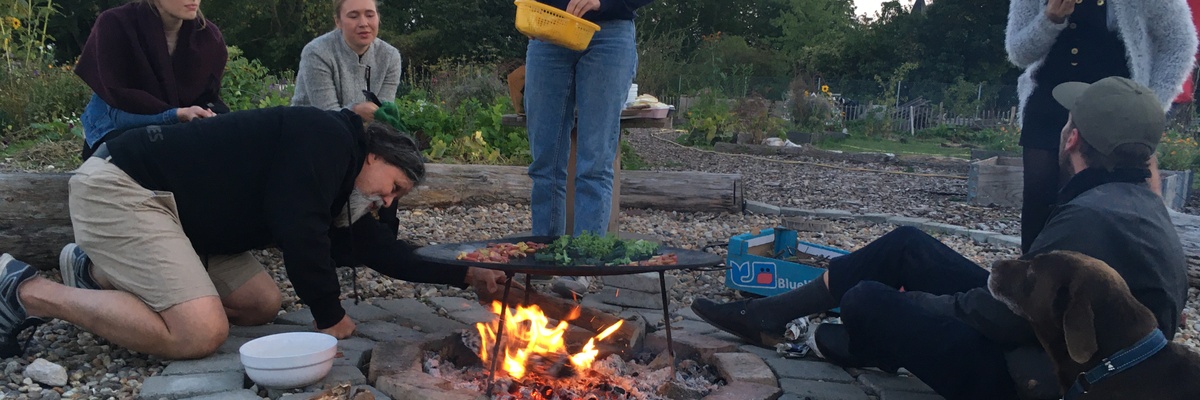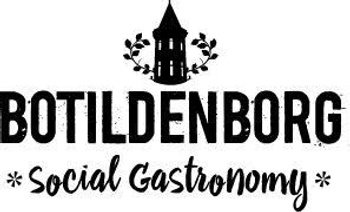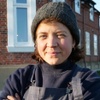Get inspired and start planning
The first thing to think about is your ambition and plans for the garden. The Botildenborg team are happy to give you a virtual tour of their garden to give you some inspiration. One of the steps in your 30 Day Challenge is to arrange a call with Cornelia, she will talk you through how to begin thinking about the plan for your garden and also how to start recruiting members for your garden.
Identfiy the land
After your initial meeting with the Botildenborg team, you should have a clearer idea in your mind for what your garden will look like. The next step is to identify the land you will use. This might be land that is already allocated for community garden / food growing or it might be unused land in your town or city that could benefit from food growing and community engagement.
Once you have sourced an area to do this, you can start thinking about how you will grow food there - will you need raised beds / boxes etc? Carry out basic observation and evaluate what the site needs. It's a good idea to document this and the team at Botildenborg can provide guidance to help you through the process.
.
Build your team
Building your team is a very important step at this stage. You will want to engage as many people as possible to support you in getting started. Not everyone needs to have growing experience but having a few people with some knowledge and experience will be helpful.
When building your team, remember these core principles:
- That everyone respects each other and that everyone should feel welcome
- Cycle thinking: Botildenborg works for increased sustainability, something we try to permeate all our projects with. For example. we grow according to ecological principles.
- Openness: Participants are welcome to come up with ideas and inspiration and participate in site creation..
Host a brainstorm on site
Pick a date and time for your team to meet together on site. This will be a good chance to do some planning and dreaming, share some food/drink to allow everyone to meet each other and share expectations, what do they wish to grow, it is important to get everyone involved early which helps with the place making. Decide on a schedule/ pick a day or time to meet regularly to get your activities kicked off.
Here are just some of the questions you can talk through when you meet as a group:
- what are you going to grow? Annual vegetables or edible perennials?
- How long will the project last? One season or several years?
- Is it worth planting shrubs and trees or just annuals?
- How should you cook, where should you sit and socialize?
- Is there electricity and water on site?
Arrange a coaching / feedback session with the Botildenborg team
Now that you've identified your land, brought your team together, it will make sense to checkin with the Botildenborg team to make sure you're on track and ready to really take action.
The team at Botildenborg and very experienced and can answer any questions you might have
You might also be thinking about your budget, here is a general estimate of costs to get your garden started:
For each item it is worth contacting organizations and companies, at times they can offer discounts or give away things for free, it is also worth reaching out to the wider community and ask for donations:
- Compost: 1800 kr
- Pallkrage (pallet beds): 100kr/each + lining: 30kr/each = 130kr/pallkrage
- Ex of 10 pallets (5 of them doubles) would cost 1300kr
- Organic fertilizer: 1000 kr
- Cost: seeds/plants: 1000 kr
- Watering equipment: 800kr
- Tools (hand trowels, spades, garden forks, rakes, buckets etc): 3000kr
- Fika/cooking material: 3000kr
Start planting
Start! Depending on how you structure the project, you might start with creating the beds or start planting straight away, decorating the site, make a corner for rest/sharing food.
This is a good time to get more people invovled in the project so that they can participate and help out with any jobs that need to be done. Reach out to people in the immediate area where you know that many pass e.g. libraries, local bulletin boards, churches / mosques, cafes, schools, etc. It is also good to reach out online on social media.
Botildenborg will also guide you through the different elements of the food growing, the cooking as well as other ideas for the community garden.









 "Welcome to Grow Buddy on ChangeX. Sharing meals with home grown produce is a great tool to learn about seasonality, eating local and to see the whole process from farm to fork. This guide is an overview of what's involved. We'll be here to guide you along the way. We're looking forward to helping you get started!"
- Cornelia Altgård, Botildenborg
"Welcome to Grow Buddy on ChangeX. Sharing meals with home grown produce is a great tool to learn about seasonality, eating local and to see the whole process from farm to fork. This guide is an overview of what's involved. We'll be here to guide you along the way. We're looking forward to helping you get started!"
- Cornelia Altgård, Botildenborg
